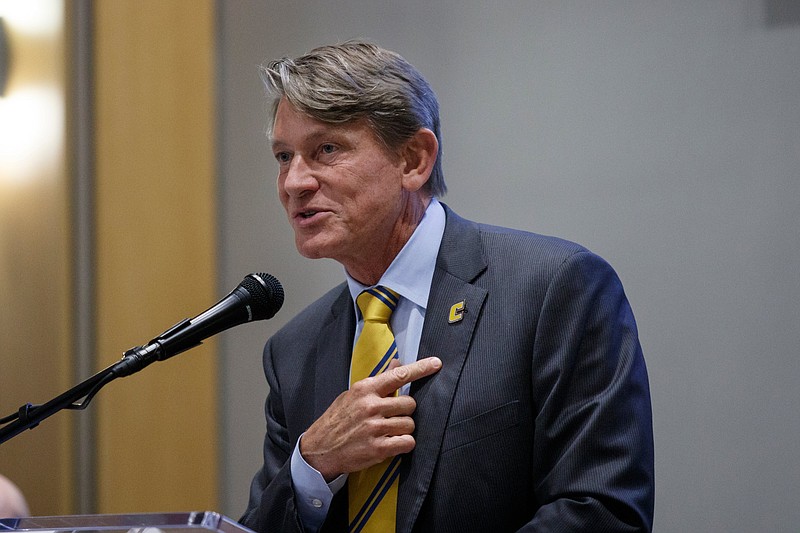NASHVILLE - Tuition for returning University of Tennessee at Chattanooga undergraduate students would rise by 2.5% in the 2019-2020 academic year under recommendations set for consideration this month by the UT Board of Trustees.
At UT-Knoxville, meanwhile, recommendations call for a 2 percent increase, the UT system said in a news release. Like UTC students, UT-Martin students would see a 2.5% increase.
University of Tennessee officials stressed the increases would still represent a record fifth year of low tuition, saying the system hasn't had five consecutive years of undergraduate tuition increases of 3% or less in 51 years.
Still, last year's increase for the 2018-2019 UTC and UT-Knoxville academic year was a flat zero.
In a statement, UT Interim President Randy Boyd said the system "continues to do all that it can to make sure that higher education is accessible for all Tennesseans. From keeping our tuition low to establishing UT Promise, we want to help ease the financial burden for our students and their families."
After years of soaring tuition hikes resulting from inflation, combined with erosion of general state government support for higher education, then-Gov. Bill Haslam five years ago reversed the decades-long trend by starting to fully fund public universities and colleges' annual academic formula requests for taxpayer support.
In exchange, UT officials said they would work to reduce costs, continue making progress on retaining students until they graduate and self-limit proposed tuition increases as much as possible.
As a result, tuition increased in the 2015 academic year by just 3% for UTC. In 2016, the increase was 2.2%, while in 2017 there was a 1.8% increase.
And then came last year's 0% increase.
This year, the Tennessee Higher Education Commission set the top limit on tuition increases at 2.5 percent.
When UT trustees meet June 21, they will consider UTC's proposed 2.5% increase for the 2019-2020 academic year.
If approved, tuition would rise by $216 per semester to $8,880.
The university also has proposed a new tuition structure called Soar in Four for new students starting in fall 2019. Under similar programs already adopted by UT-Knoxville and UT-Martin, students entering under the Soar in Four program would pay $9,656 for 15 credit hours or more a semester rather than the current rate based on 12 hours a semester.
So a student could take 18 hours and pay the same fee as for 15 hours, according to a UT spokeswoman. And by taking at least 15 hours a semester, students should be able to graduate in four years, a goal for universities.
UT-Knoxville's proposed 2 percent boost, meanwhile, represents a $258 increase from the current fiscal year. Most of that represents a tuition increase, but there's a $26 increase to the Student Programs and Services Fee, which will be used toward a future recreational sports project anticipated for fiscal year 2023-2024.
The rate also includes a $10 library fee increase that will be used to help offset annual inflation rates.
UT-Martin's 2.5 percent boost represents a $236 increase. It will cover the growth in costs of providing programs to its students.
Acting UT President Boyd's allusion to the UT Promise scholarship is a reference to a program he initiated at the university similar to the Tennessee Promise, which as a top advisor he helped created for Haslam. It awards last-dollar scholarships to students at two-year colleges.
Starting in the fall of 2020, the UT Promise kicks off as a last-dollar scholarship program. It will guarantee free tuition and fees for students with a family household income of under $50,000 after a student first receives other financial aid such as federal Pell Grants, the Tennessee Education Lottery-funded HOPE Scholarship, or other institutional scholarships.
Students must qualify for the Hope Scholarship and meet the academic qualifications for the institution to be eligible for the new UT Promise scholarship. To help ensure success, students will be matched with volunteer mentors and must complete four hours of service learning each semester.
Contact staff writer Andy Sher at asher@timesfreepress.com or 615-255-0550. Follow on Twitter @AndySher1.
